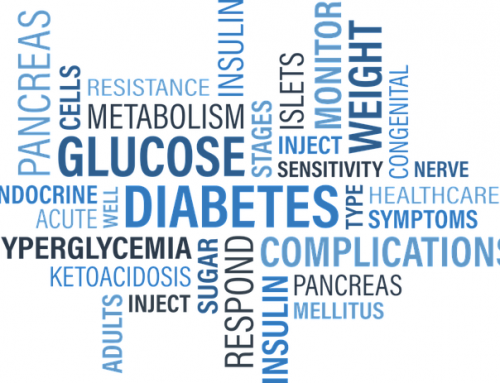CoQ10 supplementation is associated with significantly lower systolic blood pressure in adults. In 2022, Zhao et al reported on a meta-analysis of 26 studies enrolling 1,831 study participants. They found that CoQ10 supplementation significantly increased circulating levels of Coenzyme Q10 and significantly reduced systolic blood pressure in patients with cardiometabolic diseases [Zhao 2022].

In a 2007 review of 12 clinical trials (362 patients), CoQ10 supplementation was associated with lowering systolic blood pressure by up to 17 mm Hg and diastolic blood pressure by up to 10 mm Hg without significant side effects.
In sub-group analyses, the researchers found that the effects of reducing systolic blood pressure were more pronounced in patients with diabetes and in patients with abnormal blood levels of cholesterol or triglycerides. The study results show a U-shaped dose-response relationship. The best systolic blood pressure levels were observed at the bottom of the U at daily CoQ10 doses of 100–200 mg [Zhao 2022].
Definitions Used in the CoQ10 and Hypertension Study
Cardiometabolic disorders.
The researchers define cardiometabolic disorders as cardiovascular diseases, type 2 diabetes, and metabolic syndrome. All three are the leading causes of death. High blood pressure is associated with all of these disorders. Reducing blood pressure levels may well reduce the rate of morbidity and mortality. There are many medications for the treatment of high blood pressure. However, their long-term use may cause harmful effects, e.g., renal dysfunction or cardiac dysfunction [Zhao 2022].
Systolic blood pressure.
Normal blood pressure in healthy adults is generally around 120 over 80. Older adults may have blood pressure that is higher or lower than the normal 120/80. The systolic blood pressure is the top number. Systolic blood pressure is the blood pressure experienced in the arteries when the heart is pumping out blood.
Diastolic blood pressure, by contrast, is the bottom number. It is the pressure in the arteries when the heart is at rest.
Both systolic and diastolic blood pressure values are important. However, commonly, the primary care physician will be more interested in the systolic blood pressure value in terms of heart disease risk.
Coenzyme Q10 and Hypertension Sub-Analysis Outcomes
Zhao and colleagues made several interesting findings:
- CoQ10 supplementation was more effective in reducing systolic blood pressure in patients with dyslipidemia than in all study participants.
Zhao et al speculated that the difference might be attributed to lower CoQ10 levels in patients with dyslipidemia who were being treated with cholesterol-lowering drugs. The use of statin medications is associated with reduced endogenous synthesis of Coenzyme Q10. CoQ10 supplementation significantly increases circulating CoQ10 concentrations.
- CoQ10 supplementation was more effective at reducing systolic blood pressure in patients with type 2 diabetes.
Again, it is known that the levels of circulating Coenzyme Q10 are lower in diabetes patients.
Mechanisms to Explain Positive CoQ10 Supplementation Effect on Hypertension
Zhao et al propose the following mechanisms as explanations for the positive effect of CoQ10 supplementation on high blood pressure.
- Coenzyme Q10 has antioxidant properties.
Oxidative stress reduces nitric oxide availability. This results in vasoconstriction that leads to elevated blood pressure. CoQ10 supplementation enhances antioxidant protection and improves nitric oxide bioavailability. This improves endothelial function.
- Coenzyme Q10 has anti-inflammatory effects.
The beneficial effects of CoQ10 supplementation on blood pressure may be related to the anti-inflammatory properties of Coenzyme Q10. CoQ10 supplementation may help to balance pro- and anti-inflammatory cytokine activity.
- CoQ10 exerts an angiotensin effect on sodium retention.
The end effect of the CoQ10 supplementation may be reductions in the concentration of aldosterone. This would reduce blood pressure levels.
- CoQ10 supplementation may boost the production of prostacyclin and may make the arterial smooth muscle more sensitive to prostacyclin.
Prostacyclin is an important vasodilator.
- CoQ10 supplementation has hypoglycemic and hypolipidemic effects.
Elevated blood glucose and elevated blood lipid concentrations depress endothelial function and lead to the development and progression of cardiometabolic disorders.
Conclusion: CoQ10 Supplementation and Hypertension
- The intake of Coenzyme Q10 the daily diet of most people is relatively low. Therefore, the daily dietary intake of Coenzyme Q10 may be far from adequate in individuals beyond middle age, individuals taking statin medications, and individuals cardiometabolic disorders.
- CoQ10 supplementation is associated with significant reductions in systolic blood pressure.
- The positive effect of CoQ10 supplementation on high blood pressure is notably greater in patients with type 2 diabetes and in patients with dyslipidemia.
- The research evidence indicates that CoQ10 supplementation of 100–200 mg/daily can improve systolic blood pressure in patients with cardiometabolic disorders.
- Commercially available CoQ10 supplements vary considerably in how well the Coenzyme Q10 is absorbed. It is essential to purchase a CoQ10 supplement with proven absorption and bioavailability.
Sources
Rosenfeldt FL, Haas SJ, Krum H, Hadj A, Ng K, Leong JY, Watts GF. Coenzyme Q10 in the treatment of hypertension: a meta-analysis of the clinical trials. J Hum Hypertens. 2007 Apr;21(4):297-306.
Zhao D, Tian Z, Kuang H, Xu Y, Zheng Y, Zhong Z, Liang L, Yang Y. Associations between long-term dietary Coenzyme Q10 intake and new-onset hypertension in adults: insights from a nationwide prospective cohort study. Nutrients. 2024 Jul 31;16(15):2478.
Zhao D, Liang Y, Dai S, Hou S, Liu Z, Liu M, Dong X, Zhan Y, Tian Z, Yang Y. Dose-Response effect of Coenzyme Q10 supplementation on blood pressure among patients with cardiometabolic disorders: a grading of recommendations assessment, development, and evaluation (GRADE)-assessed systematic review and meta-analysis of randomized controlled trials. Adv Nutr. 2022 Dec 22;13(6):2180-2194.
The information presented in this review article is not intended as medical advice. It should not be used as such.




Leave A Comment